Donald Trump presidency puts California Legislature in defense mode
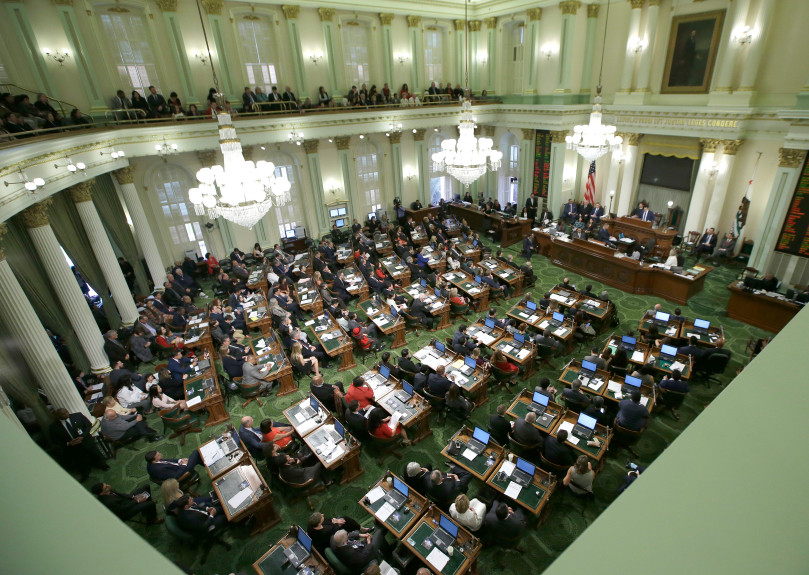
As California lawmakers return to Sacramento on Wednesday, liberal dreams of expanding safety-net benefits and providing health coverage to immigrants are giving way to a new vision revolving around a feverish push to protect gains racked up in the past. After years of pushing forward a progressive agenda, legislative Democrats will be pushing back against conservative policies from President-elect Donald Trump and the Republican Congress. Instead of expanding Medi-Cal health coverage to adult immigrants who can’t prove they’re legally in the country, Democrats are now concentrating on how to retain health coverage for those who already have it. And anti-poverty groups are focused on preventing cuts to food stamp and welfare programs rather than trying to expand them as planned. “There is so much uncertainty at the federal level, because they’re talking about some really drastic policy choices that could have a really negative impact on California,” said Scott Graves, research director for the California Budget & Policy Center, a left-leaning research group. Last year was a particularly effective one for California liberals. The Legislature extended the nation’s most ambitious climate change programs, raised the minimum wage to $15 and toughened gun laws. Lawmakers boosted overtime for farmworkers, expanded welfare benefits and enacted a sweeping array of anti-tobacco measures. This year had all the makings of continuing the trend. Democrats will arrive Wednesday with supermajorities in both chambers – enough to advance their own agenda without GOP interference if they stand united. Notably, though, Democrats took their first action as a supermajority not to advance a contentious public policy objective but to send a message to Trump. Right after they took the oath of office last month, Democrats in the Assembly and Senate suspended legislative rules to immediately approve resolutions urging the incoming administration to keep a program allowing hundreds of thousands of young immigrants who are in the country illegally to stay. While the California Legislature has broad authority to chart its own agenda, it relies significantly on federal dollars. According to the state Department of Finance, California gets $96 billion from the federal government, a figure almost as large as the state’s $122 billion general fund. Those federal funds cover a massive share of the budget for health care, food stamps, welfare and other safety-net programs. Liberals are particularly worried that the budget prepared by U.S. House Speaker Paul Ryan, R-Wisconsin, will lead to severe cuts in those programs through block grants or other methods of shifting responsibility to states, while also giving them more flexibility. “Block granting … is just not what’s in the best interests of the recipients of those programs,” said Sen. Holly Mitchell, a Los Angeles Democrat who will lead the state budget committee next year. “We’re dealing with hungry people, which we cannot ignore.” Graves noted that before the election, he hoped the Legislature would take a serious look at boosting subsidized child care and Supplemental Security Income payments for seniors and people with disabilities. That seems less likely now. Congressional Republicans also are eager to repeal President Barack Obama‘s health care overhaul, which provides $20 billion for the Medi-Cal program and private insurance subsidies. Preserving that coverage, much less expanding it to cover more people, would be extremely expensive. The California Endowment has provided millions of dollars for an advocacy campaign called Health4All to expand Medi-Cal coverage for immigrants who can’t prove they’re legally in the United States. In December, it announced a new initiative: Fight4All. The $25 million effort reflects a shift in focus from creating new rights to defending existing ones. “A whole host of areas where significant progress has been made in California in the last five or six years or so, we feel that work is now in jeopardy,” said Dr. Tony Iton, the endowment’s senior vice president. Still, conservatives in the state aren’t optimistic that Trump’s presidency will give them a reprieve from lawmakers’ persistent push to the left. California’s Legislature is “sort of like its own nation-state,” said Tom Scott, California director of the National Federation of Independent Business, a small-business advocacy organization that often is at odds with legislative priorities including labor and environmental mandates. “Quite frankly, whatever the Trump administration does, it will not stop Gov. Brown and the state Legislature from moving forward on their political agenda,” Scott said. “So I’m on one level expecting sort of business – or un-business – as usual, and I don’t see that changing.” Republished with permission of the Associated Press.
As Barack Obama accomplished policy goals, his party floundered
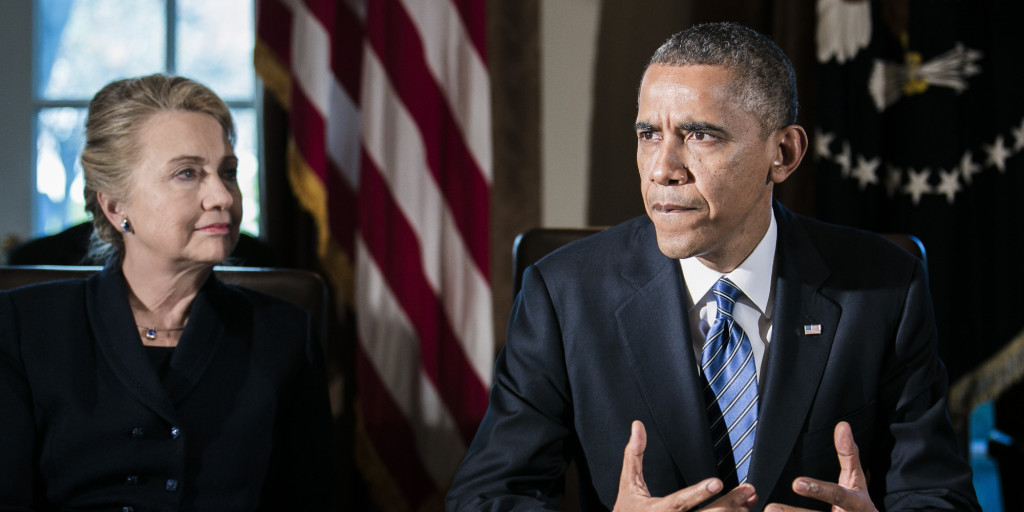
In boasting about his tenure in the White House, President Barack Obama often cites numbers like these: 15 million new jobs, a 4.9 percent unemployment rate and 74 months of consecutive job growth. There’s one number you will almost never hear: More than 1,030 seats. That’s the number of spots in state legislatures, governor’s mansions and Congress lost by Democrats during Obama’s presidency. It’s a statistic that reveals an unexpected twist of the Obama years: The leadership of the one-time community organizer and champion of ground-up politics was rough on the grassroots of his own party. When Obama exits the White House, he’ll leave behind a Democratic Party that languished in his shadow for years and is searching for itself. “What’s happened on the ground is that voters have been punishing Democrats for eight solid years – it’s been exhausting,” said South Carolina state Sen. Vincent Sheheen, who lost two gubernatorial campaigns to Nikki Haley, President-elect Donald Trump‘s pick for ambassador to the U.N. “If I was talking about a local or state issue, voters would always lapse back into a national topic: Barack Obama.” When Obama won the presidency, his election was heralded as a moment of Democratic dominance – the crashing of a conservative wave that had swept the country since the dawn of the Reagan era. Democrats believed that the coalition of young, minority and female voters who swept Obama into the White House would usher in something new: an ascendant Democratic majority that would ensure party gains for decades to come. The coalition, it turns out, was Obama’s alone. After this year’s elections, Democrats hold the governor’s office and both legislative chambers in just five coastal states: Oregon, California, Connecticut, Rhode Island and Delaware. Republicans have the trifecta in 25, giving them control of a broad swath of the middle of the country. The defeats have all but wiped out a generation of young Democrats, leaving the party with limited power in statehouses and a thin bench to challenge an ascendant GOP majority eager to undo many of the president’s policies. To be sure, the president’s party almost always loses seats in midterm elections. But, say experts, Obama’s tenure has marked the greatest number of losses under any president in decades. “Obama just figured his important actions on policies like immigration and health care would solidify support, but that hasn’t really materialized,” said Daniel Galvin, a political science professor at Northwestern University and the author of a book on presidential party building. “He’s done basically the minimal amount of party building, and it’s been insufficient to help the party.” It’s a political reality that Obama has only been willing to acknowledge publicly after his party’s devastating November losses. He’s admitted he failed to create “a sustaining organization” around the political force that twice elected him to office. “That’s something I would have liked to have done more of, but it’s kind of hard to do when you’re also dealing with a whole bunch of issues here in the White House,” he said at his year-end press conference. It is perhaps not surprising that Obama – a politician who promised a post-party era – turned out not to be a party stalwart. Obama and his aides came into office neither beholden to his party’s establishment, nor particularly interested in reinforcing his party’s weak spots. He electrified the 2004 Democratic National Convention with a speech seeking common cause over party differences. Four years later, he defeated Hillary Clinton, the pick of the party insiders, to win the Democratic presidential nomination. In the White House, Obama’s failure to do the typical Washington schmoozing was a constant source of complaint among congressional Democrats, as was his reluctance to endorse down-ballot candidates and inability to parlay Organizing for Action, his grassroots organization, into a significant force. State parties languished and the Democratic National Committee struggled with dysfunction and debt. “We built this beautiful house, but the foundation is rotten,” said South Carolina Democratic Chairman Jaime Harrison, a candidate to lead the Democratic National Committee. “In hindsight we should have looked at this and said, ‘Maybe the state parties should be strong.’” Toward the end of his presidency, Obama began doing more, stepping in to assist more than 150 state legislative candidates in October and campaigning across the country for Clinton. He’s indicated he intends to make partisan politics a bigger piece of his post-presidential life. Aides say Obama will be closely involved in an effort to focus on drawing district lines more in the favor of Democrats. The president’s advisers blame the losses on such structural trends. They point to a flood of Republican super PAC dollars and a resurgence of Republican political power in statehouses. That state-level dominance has given Republicans the ability to redraw district lines and created voting rules that could benefit their party for years to come. The refusal by many Democrats to accept help from Obama in the 2010 and 2014 midterms was also a strategic mistake, they argue. “Frankly, when people have asked, the president has been more than willing to engage,” said David Simas, Obama’s political director. Some Democrats blame Obama for an executive agenda that highlighted social issues – such as transgender rights and access to birth control – over the economic anxiety still felt by many voters. “The backlash to the Obama presidency was perhaps bigger than any of us really realized,” said Simon Rosenberg, president of the New Democratic Network, a Democratic think tank. “A lot of the story of this election was people feeling like the culture was evolving in a way that made it feel like they were no longer living in the country they grew up in.” Others are focusing on the one clear truth of the November defeats: What worked for Obama just did not work for this party. Perhaps the most remarkable twist of a shocking political season? Even as voters chose to elect a successor who vows to undo most of Obama’s legacy, his
Democrats cite gov’t: Donald Trump must divest from DC hotel
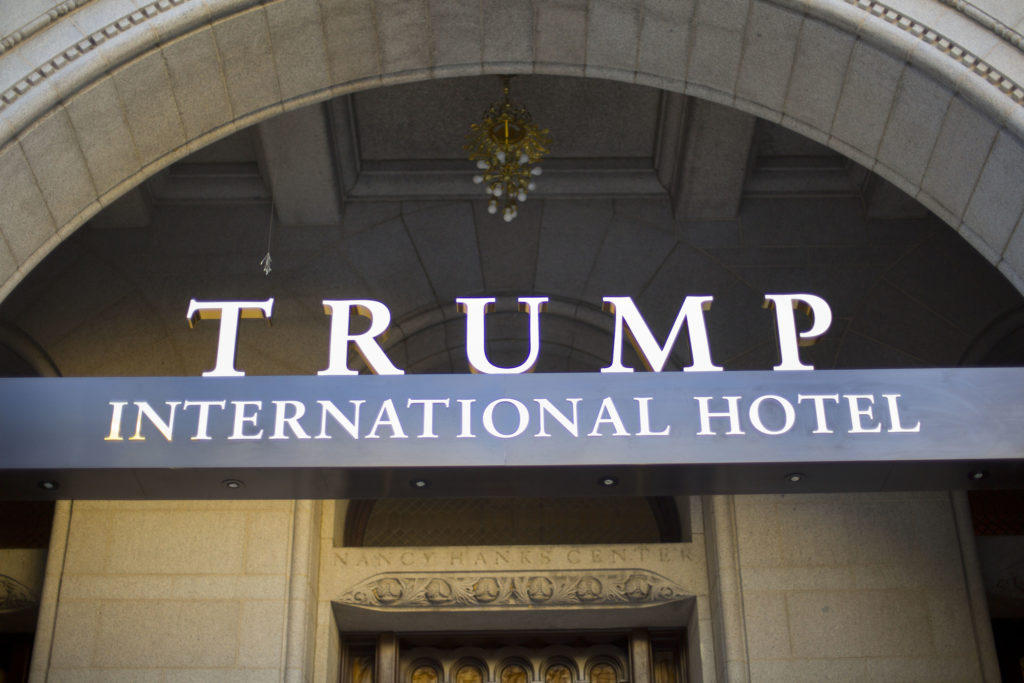
The government says Donald Trump must divest all financial interests in his splashy new Washington hotel or be in breach of his lease the moment he becomes president next month, House Democrats said Wednesday. An official from the U.S. General Services Administration, which holds the lease on the Trump International Hotel, said in a Dec. 8 briefing to members of Congress that “Mr. Trump must divest himself not only of managerial control, but of all ownership interest as well,” the top Democrats on the House oversight and transportation committees said in a letter they made public. The letter suggests the government concurs with experts who say Trump’s lease requires him to give up his stake in the newly opened hotel on Pennsylvania Avenue. Trump advisers told reporters Wednesday that Trump will hold a news conference in January to discuss the matter, but they otherwise refused comment. The General Services Administration said it would be releasing a statement on the matter later Wednesday. Government ethics experts have been urging Trump to follow the precedent of most recent presidents by selling off his holdings and putting the money in a blind trust overseen by a manager without ties to him. Trump tweeted Monday that he plans to hand managerial control of his business to two of his children along with executives, leaving open the possibility that he will retain his ownership stake. Divesting could present difficulties and take time. The Trump Organization has interests in about 500 companies around the world, though many appear to be companies set up for legal and tax purposes with little business operations. In addition to hotels, Trump has interests in resorts, golf clubs, office and retail space and residential buildings. Many properties are not owned by him but bear his name under licensing deals. The Trump Organization won the right to lease the Old Post Office building on Pennsylvania Avenue in 2012, beating out several groups. Trump and the GSA took more than a year to hammer out a 60-year lease for its use. At issue are 43 words of the lease’s clause 37.19 on top of page 103, which has been interpreted by some experts on government contracting law – and Trump critics – to force the president-elect to unload his equity stake in the government-owned building near the White House. The document’s key part: No “elected official of the Government of the United States” shall be “admitted to any share or part of this Lease.” The GSA has concluded that means Trump must dump all of his financial interest before he takes office Jan. 20, according to the House Democrats. The Democrats wrote to GSA Administrator Denise Roth that Ivanka Trump, the president-elect’s daughter, has been the chief contact for the agency and this raises “obvious” conflicts of interest. The hotel has been a focus of criticism by government ethics experts. In addition to any breach of the lease, they worry that foreign governments will try to curry favor with the president-elect by booking rooms for their officials and hosting events there. Republished with permission of The Associated Press.
Coal-state Dems threaten gov’t shutdown over aid for miners

Hours to a government shutdown, coal-state Senate Democrats blocked swift action on a stopgap spending bill over benefits for retired miners and pressed President-elect Donald Trump, a self-proclaimed coal champion, to intervene with Republicans. The House on Thursday easily approved the must-pass bill that would keep the government operating beyond Friday’s midnight deadline and through April 28. The vote was 326-96. But the bill stalled in the Senate as Democrats facing re-election in 2018, including West Virginia’s Joe Manchin, Sherrod Brown of Ohio and Bob Casey of Pennsylvania, fought for a one-year extension for the miners’ health benefits rather than the temporary, four-month fix in the bill. Trump won those three states last month with heavy support from working-class voters in coal and steel communities. Challenging another coal-state lawmaker – Majority Leader Mitch McConnell of Kentucky. – Democrats said their fight on behalf of miners was a matter of fairness, upholding a 1946 guarantee by President Harry S. Truman to provide miners lifetime health and retirement benefits. Manchin called the GOP proposal to temporarily extend health care benefits for about 16,500 retired union coal miners “horrendous” and “inhumane” and accused lawmakers of turning their backs on people who built the country and made it great. While Democrats do not want to shut down the government, they’re willing to do so to protect the miners, Manchin said. “You’ve got to stand for something or surely to God you’ll stand for nothing,” he said. Democrats called on Trump to uphold a campaign promise to help coal miners by persuading Republican leaders to adopt a broader bill that would protect health care and pension benefits for the next decade. The Republican-controlled Senate Finance Committee approved the $3 billion bill in September, but the measure has stalled in the full Senate. “Who’s for the working people? Where’s Donald Trump on miners?” asked Sen. Claire McCaskill, D-Mo, who also faces re-election in 2018. “Republicans are bragging about the kind of support they have from workers in coal country … and now are prepared to just extend their health care for (four) months,” said White House Press Secretary Josh Earnest. Missing in action on the latest fight were two Republicans – Ohio’s Rob Portman and Pat Toomey of Pennsylvania – who had backed the broader bill when faced with tough re-election fights. Without mentioning their names, Democratic Sen. Bob Menendez of New Jersey referred to their absence now that the two had comfortably returned to the Senate. “Members who were running for re-election got to go home and say … ‘we’ll take care of it when we come back after the elections.’ Well, here we are,” he said on the Senate floor. Aides to Portman and Toomey did not return repeated calls for comment. McConnell and other GOP leaders are wary of bailing out unionized workers, with some arguing that all coal miners should get the help. Some Republicans also say the bill could pressure Congress to offer similar help to other cash-strapped pension funds. “They’re not going to get what they want. They ought to actually be grateful for what they got,” said Sen. John Cornyn of Texas, the No. 2 Republican. But Brown said Democrats hope Trump, “in his words about Buy America and his talk about workers, will help us convince Republicans.” The dispute over the miners’ benefits was not the only one holding up action in the Senate as lawmakers sought to complete their work for the year. The House on Thursday cleared the government-funding bill and another bill authorizing hundreds of water projects, including measures to help Flint, Michigan, rid its water of poisonous lead, and one to allow more of California’s limited water resources to flow to Central Valley farmers hurt by the state’s lengthy drought. Sen. Barbara Boxer, D-Calif., vowed to filibuster the massive water projects bill, saying it favors corporate farmers over fishermen and endangered species. It appeared to be an uphill struggle, in part because her California colleague, Sen. Dianne Feinstein, favors the changes for the distribution of the state’s water resources. Democrats’ options are limited, especially since House members left for a three-week holiday and won’t consider changes to either bill. “If we can’t stand for working men and women in this country, we deserve what the American people think of us. We deserve the (low) ratings we get,” said Sen. Heidi Heitkamp, D-N.D., at a news conference with miners. Republished with permission of The Associated Press.
Democrats aim to rebuild the blue political wall in Midwest

With the dust now settled from the election, Democrats are looking to rebuild the political “blue wall” of traditionally Democratic upper Midwest and Great Lakes states that Republican Donald Trump captured with an appeal to white, working-class voters. Hillary Clinton‘s failure to hold key blocs of these voters helped seal Trump’s stunning electoral victory and leaves Democrats with a gaping, perhaps long-term, hole in the party’s national battle front. Trump boasted of his accomplishment at a post-election rally in Ohio. The president-elect crowed: “We didn’t break it, we shattered that sucker. We shattered it, man. That poor wall is busted up.” Trump carried Michigan and Pennsylvania, where Democratic nominees had won the previous six presidential elections. Trump also won Wisconsin, carried by Democrats in seven straight tries, and Iowa, carried just once by a Republican over the same period. In each, Trump vastly outperformed 2012 GOP nominee Mitt Romney in rural areas, while also seizing more typically Democratic-voting small cities and working-class suburbs. Should Democratic voting continue to lag behind Republicans in midterm elections, as it did in in 2014, the results could be devastating in two years when the party will defend Senate seats in Michigan, Wisconsin and Pennsylvania, and try to retake governorships in Iowa, Michigan and Wisconsin. “Democrats suffered the consequences of apathy and selective amnesia over the past midterms and arrogance over the presidential electorate,” said Haley Morris, a senior adviser to Democrat Gary Peters‘ Michigan Senate campaign, among the Democrats’ few 2014 victories in the region. “We got walloped across the Midwest in 2010 and 2014. Democrats had a glimpse of what the results could look like without Barack Obama on the ticket and ignored it.” Mark Jefferson, the Republican National Committee’s Midwest regional political director, said the GOP consistently focused on “blue-collar Reagan Democrats, who were heavily trending toward Trump.” County-specific, unofficial national voting data tabulated by The Associated Press shows Clinton received fewer votes than Trump in places Democrats had banked on for consecutive elections, and even decades, such as Dubuque County, Iowa. Trump edged Clinton by fewer than 1,000 votes in this northeast Iowa county known for its small-city namesake on the Mississippi River and its once thriving manufacturing economy. Trump became the first Republican to carry Dubuque County since Dwight D. Eisenhower in 1956. Clinton’s 22,774 Dubuque County total fell roughly 6,000 fewer short of Obama’s 28,768 in 2012, and more than 1,000 behind his 23,791 in 2008. Dubuque’s Rebecca Thoeni, a lifelong Democrat until recently, said Clinton did not seem to reach out to her or her peers in 2016. “Then I saw Donald Trump, and he got out there and showed he was serious about keeping jobs,” said Thoeni, who attended a Dubuque Trump rally in January. “He explained things in layman’s terms. That’s what changed me.” Thoeni’s is a scenario that echoed loudly around the country, where six in 10 white women without college degrees said they voted for Trump, according to exit polls conducted for The Associated Press by Edison Research. The rate was even higher among white, non-college educated men. And it played out in the thousands in Macomb County, Michigan, home to 10 percent of the state’s voters. After railing for months against the North American Free Trade Agreement, enacted under President Bill Clinton, Trump won Macomb by 48,000 votes. Clinton received 176,238 votes, compared with Obama’s 208,016 in 2012 and 223,754 in 2008. “In counties decimated by trade deals, decades of talking points don’t pay the bills,” said Robert Becker, who ran Vermont Sen. Bernie Sanders’ winning campaign for the Michigan Democratic presidential 2016 primary. “For the party’s future, we have to be honest that the jobs being created in the country aren’t being created in this part of the country.” The pattern held in Wisconsin too, where Trump won fewer votes than Romney did in suburban Milwaukee and where Trump’s criticism of Gov. Scott Walker worked against him. However, he carried the state in part by winning places like Racine County, part of a former union-heavy industrial corridor between Milwaukee and Chicago. Trump received about 4,000 votes more than Clinton in Racine County. Clinton’s 42,506 were more than 10,000 off Obama’s 53,008 in 2012 and 53,405 in 2008. In Pennsylvania, Trump similarly won Erie and Luzerne counties, smaller metropolitan areas than sprawling Philadelphia and its suburbs, but with a higher white working-class population and unemployment higher than the state average. Democratic presidential candidates had carried both counties in the past six consecutive elections. Trump beat Clinton in Luzerne County – childhood home of Vice President Joe Biden – 78,303 to 52,092. In the final weeks, Clinton focused on emerging Democratic states such as Arizona and North Carolina. She lost both. Clinton did not have ties to working-class white voters as strong as those of her husband, who had been governor of Arkansas, said political historian Mary Frances Berry of the University of Pennsylvania. Berry, who has also worked for Democratic candidates, said before the election that Hillary Clinton was not contesting Trump in blue-collar country. The Democratic Party is seen by ordinary, working people as “caring about the cultural, managerial and professional elite,” she said, “not about them.” Republished with permission of the Associated Press.
Nancy Pelosi cedes some powers to Dems angry over elections
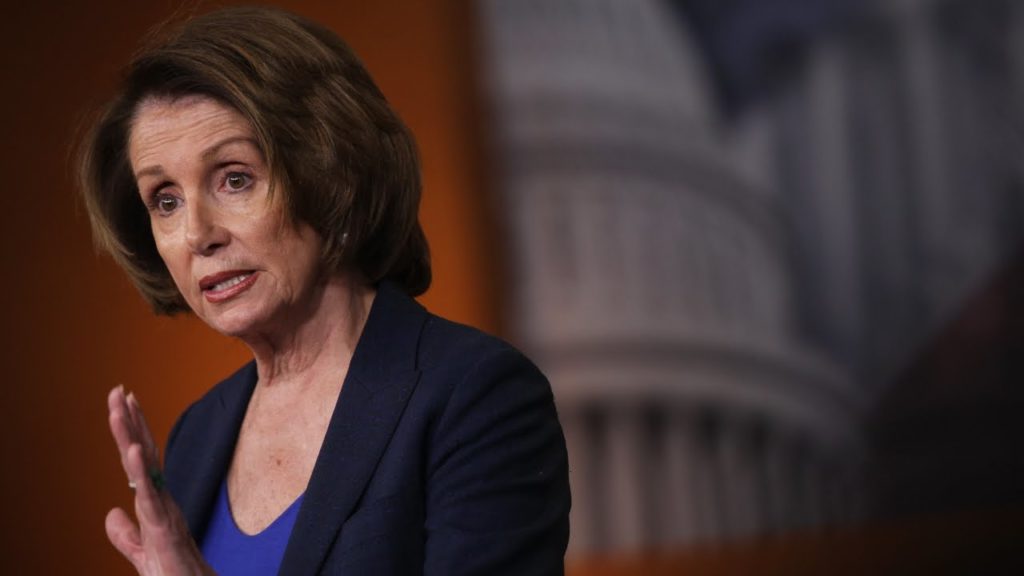
Democrats angry over the party’s dreary Election Day have decided to strip some power from House Minority Leader Nancy Pelosi – but with her support. House Democrats emerging from a private meeting Thursday said they voted by voice to make the leader of their political committee an elected post. Until now, Pelosi’s appointed a lawmaker to that job. Pelosi suggested that change, and others designed to give the rank and file more power, on Wednesday after winning re-election to her leadership job. Nearly a third of Democrats voted against her. House Democrats were unhappy that they gained just six seats in last month’s elections. New Mexico Democratic Rep. Ben Ray Lujan chaired the Democratic Congressional Campaign Committee for the past two years. No date is set for that election. Republished with permission of The Associated Press.
Nancy Pelosi promises more influence for junior Democrats
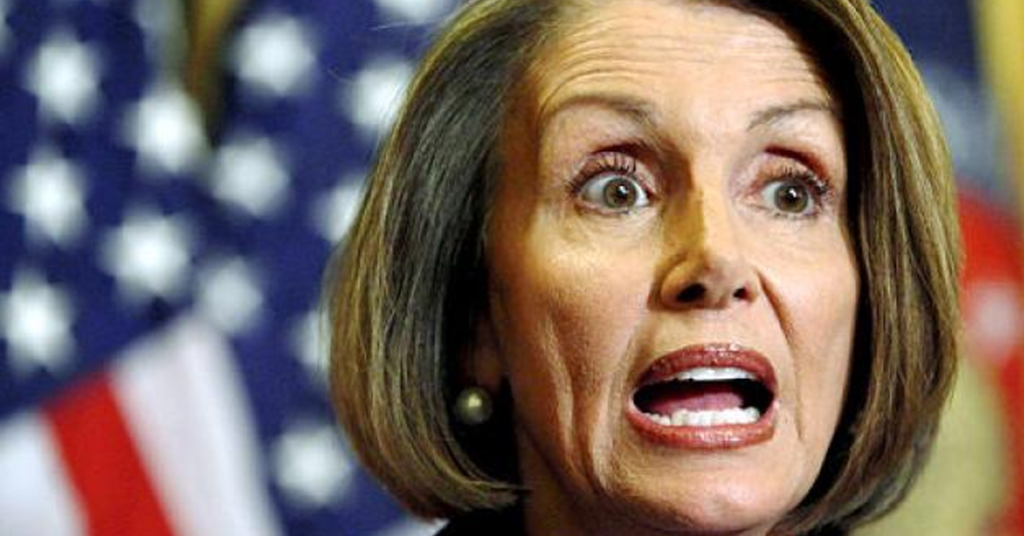
Nancy Pelosi is responding to a challenge to her position as top House Democrat by proposing to give more influence to junior lawmakers atop congressional committees and within her leadership team. Pelosi, 76, has been the chamber’s Democratic leader since 2002. She is being challenged by Ohio Rep. Tim Ryan in the aftermath of elections that were disappointing for Democrats who expected Hillary Clinton to be elected president and their party to make sizable gains in the House. Pelosi appears to be addressing widespread unease among more junior lawmakers who say that opportunities to advance and influence the party’s course are lacking so long as the same senior Democrats remain in charge. Ryan says he is better able to appeal to Rust Belt and rural areas where Democrats used to perform better. Pelosi points to her successful leadership in the mid-2000s that led the party into the majority for four years. Pelosi’s core leadership team has been in place for a decade and octogenarians command the top Democratic posts of several powerful committees, including the Judiciary panel and the powerful Ways and Means Committee, which has sweeping jurisdiction over taxes, trade, health care and Social Security. Pelosi is the overwhelming favorite to defeat Ryan and hold onto her post as minority leader. But she’s responding to the unease among junior Democrats by proposing that less senior lawmakers be given the No. 2 spots on committees. She would also immediately create three leadership positions for Democrats who have served fewer than 10 years, and designate the No. 3 leadership post for a lawmaker who has served fewer than three terms. “Making this fight requires all hands on deck,” Pelosi wrote to fellow Democrats. Ryan, 43, had earlier issued similar proposals designed to give a greater role to more junior Democrats. And he says the party has to expand far beyond its coastal and urban strongholds. “I’m pulling the fire alarm because the house is burning down, and we better get our act together or we’re going to cease being a national party,” Ryan said Monday on the Fox Business Network. “We’re going to be a regional party that fails to get into the majority and fails to do things on behalf of those working class people that were the backbone of the Democratic Party for so long.” Republished with permission of the Associated Press.
Chance of Dem challenge to Nancy Pelosi grows
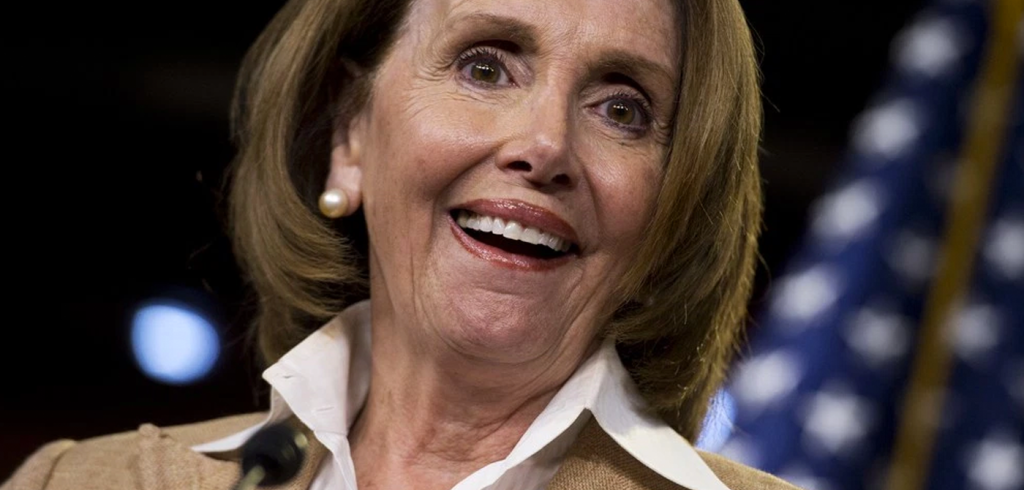
Reeling from an electoral shellacking, discontented House Democrats on Thursday signaled they may challenge Rep. Nancy Pelosi as minority leader. Republicans focused on wrapping up a short-term spending bill into early next year when an all-GOP government will rule. Ohio Rep. Tim Ryan said he would decide soon on whether to run against Pelosi in party elections later this month. “I think there’s a lot of anxiety in the caucus and a lot of people want some change,” said the 43-year-old congressman. “I would think it has to be at the top “ Pelosi, well-known for her ability to count votes, said in announcing her candidacy on Wednesday that she has the backing of two-thirds of the caucus. Ryan dismissed that claim as disgruntled Democrats clamor for change after losing the White House and remaining in the minority in the House and Senate with minimal gains. In a closed-door session, Rep. Kathleen Rice, D-N.Y., said she told her colleagues that “if we don’t, as a party, have our leaders accept responsibility for where we are, we can’t move forward and get to the point where our message is going to resonate with voters.” Pelosi, 76, is a survivor who enjoys enormous respect and goodwill among most Democrats, even as many of her closest allies have left Congress. She has managed to maintain unity within the diverse flock of House Democrats and is an unparalleled fundraiser for them, collecting more than $100 million in the past cycle alone. She was crucial in ensuring President Barack Obama‘s health care overhaul became law in 2010. Even in the minority under Obama, Pelosi has been a savvy negotiator with GOP leaders when Democratic votes were needed to advance legislation. The first female speaker of the House, Pelosi has led House Democrats since 2002. “When somebody challenges you, your supporters turn out, both internally in the caucus and in the country,” Pelosi told reporters at her weekly news conference. Angry lawmakers expressed their frustration in the closed-door session, and some grew angrier after Pelosi left the room to hold her weekly news conference, according to those who attended the session and spoke on condition of anonymity because they weren’t authorized to publicly discuss the session. In the meeting, Rep. Ruben Gallego, D-Ariz., said he issued a challenge in the caucus “that anybody who is running for any position of leadership needs to come back and explain to us how we’re going to be able to survive one, the Trump years, but two, to not have the same excuse we have every two years where there’s some external factor that somehow causes us to not gain the seats that we need.” The elections had been scheduled for Thursday but were postponed until Nov. 30. On the budget front, House Republican leaders said President-elect Donald Trump wants a short-term spending bill to keep the government running through March of next year. The current stopgap spending bill runs out in less than a month, on Dec. 9. House and Senate negotiators are working on a bill they could pass before leaving for the holidays. House Republicans met Thursday behind closed doors with Vice President-elect Mike Pence. Speaker Paul Ryan told them the new administration prefers a four-month extension of spending. Such a move would let the Republican-controlled government boost military spending while making deep cuts in domestic programs next year. Republished with permission of the Associated Press.
Still reeling, Democrats begin battling for future
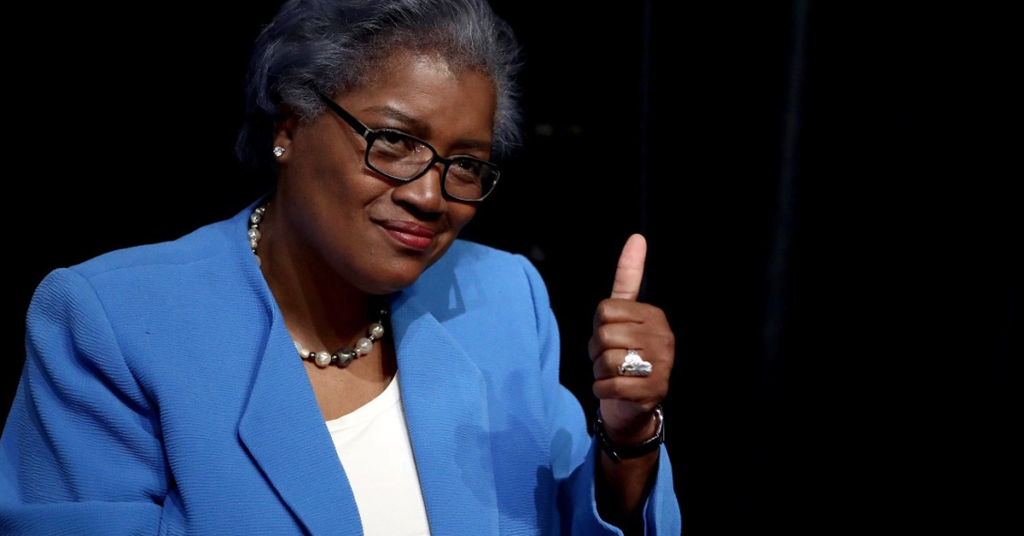
Still reeling from a devastating defeat in last week’s election, Democrats are beginning the process of charting the direction of their party in the Donald Trump era. With Hillary Clinton and her team staying out of the public eye, liberal politicians have begun jockeying for control of the party’s future. While they all backed Clinton, they’re now pushing for a serious shift in the party’s policy positions, financial resources and grassroots organizing to focus more on motivating their base and winning back the white working class voters who went for Trump. “We have to do a lot of rethinking,” said Vermont Sen. Bernie Sanders, who mounted a fierce challenge to Clinton in the primary. “Democrats are focused too much with a liberal elite, which is raising incredible sums of money from wealthy people,” Sanders said on CBS’s “Face the Nation.” The Democratic National Committee, the last bastion of party power in Washington, is quickly emerging as ground zero for the fight. After losing the White House and Congress – and likely the ideological tilt of the Supreme Court – the Democrats’ new chief likely will be one of the party’s most visible faces in politics, making the role a far more influential post than it was during the Obama administration. Already, around a dozen Democrats’ names have been publicly floated to succeed interim chairwoman Donna Brazile, who replaced Florida Rep. Debbie Wasserman Schultz in July after she was caught up in a hacking scandal. Minnesota Rep. Keith Ellison, a prominent progressive and the first Muslim elected to Congress, has emerged as an early contender, backed by much of the party’s liberal wing. He’s also picked up support from several key Democratic leaders, including outgoing Senate Democratic leader Harry Reid and Reid’s likely replacement, New York Sen. Chuck Schumer. Ellison was expected to officially announce his bid on Monday. His supporters argue that Ellison’s faith would send an important signal about the party’s commitment to inclusivity during the Trump administration. “My friend Keith Ellison is a terrific leader and a strong progressive who knows how to get things done. Now is the time for new thinking and a fresh start at the DNC. Now is the time for Keith,” Reid said in a statement on Sunday. In interviews on Sunday talk shows, Ellison pushed back on concerns that he’d be unable to balance party responsibilities with the politics of his day job in Congress – a problem some Democrats believe hampered Wasserman Schultz. “There’re a lot of places that I can serve,” he said, in an interview on NBC’s “Meet the Press.” ”I’m looking for a place to be of use and benefit. And every single Democrat in this country better be thinking the exact same way.” Ellison is far from the only contender for the job. Former Vermont Gov. Howard Dean announced his intention Thursday to reclaim a post he held during the Bush administration. Former Maryland governor Martin O’Malley, DNC National Finance Chairman Henry Muñoz III, and South Carolina Democratic Party Chairman Jaime Harrison have also said they’re considering bids. Others are pushing for a Latino leader, arguing that the growing demographic group is crucial to the party’s future and should be represented at the highest levels of its leadership. Outgoing Labor Secretary Thomas Perez, Arizona Rep. Ruben Gallego and California Rep. Xavier Becerra are said to be weighing a bid. Jason Kander, an Army veteran who lost the Senate race in Missouri to Roy Blunt on Tuesday, is also said to be considering a run. The contest comes at a time of deep unrest for the party – and the country. Anti-Trump protests continued this weekend with thousands of demonstrators turning out in cities across the country. And post-election polls showed a significant minority of Clinton backers question the legitimacy of Trump’s win. Top party leaders are urging Democrats not to despair. “It’s time to brush ourselves off, get back in the arena, and get ready to fight,” President Barack Obama said in an email to supporters inviting them to join a call with him on Monday evening about moving forward. Clinton, meanwhile, has offered little advice to supporters after her concession speech on Wednesday. On a weekend call with top donors, she blamed her loss largely on the FBI’s decision to revive its examination of her email accounts. She made nearly no mention of the other factors driving Trump’s victory, including flaws within her own message, and offered her backers little guidance on moving forward, according to donors on the call. Republished with permission of the Associated Press.
Republicans keep control of the U.S. Senate as Democrats fall short
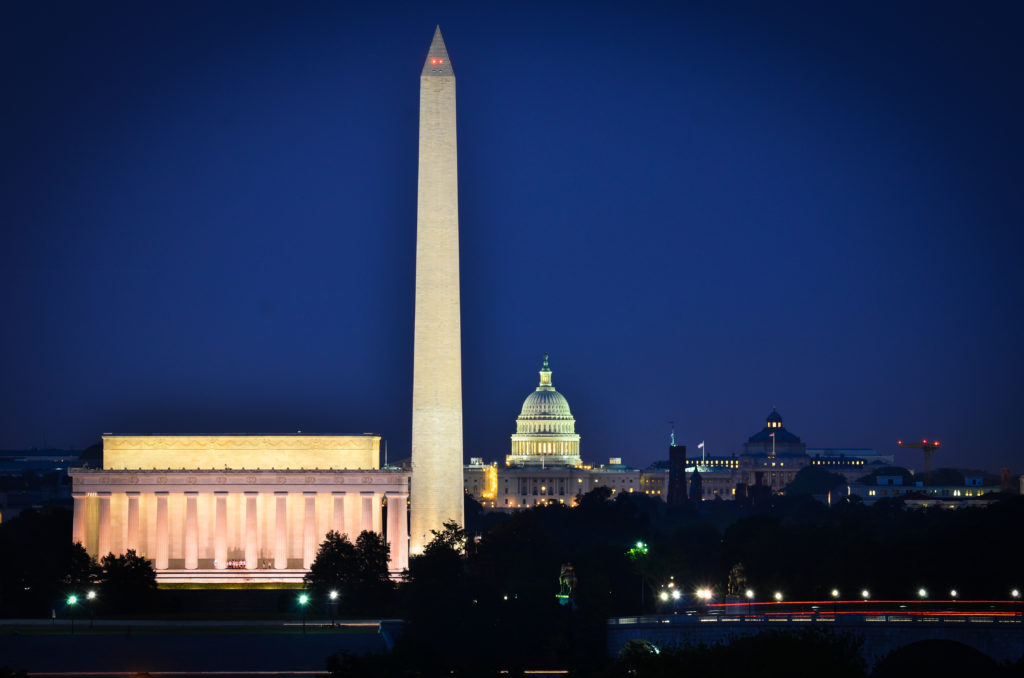
Republicans held onto their slim Senate majority, a stinging blow to Democrats in a night full of them. Democrats had been nearly certain of retaking control but saw their hopes fizzle as endangered GOP incumbents won in Missouri, Pennsylvania, North Carolina and even Democrat-friendly Wisconsin. GOP-held New Hampshire remained too close to call on Wednesday morning, but even if Democrats eked out a win there it would not make a difference. Republicans started the night with a 54-46 majority in the Senate and were on track to end up with at least 52 seats, presuming they win a December runoff in Louisiana, as expected. The outcome added to a debacle of a night for Democrats, who lost the presidency and faced being consigned to minority status on Capitol Hill for years to come. Republicans celebrated their wins, already looking ahead to midterms in 2018 when Democrats could see their numbers reduced even further with a group of red-state Senate Democrats on the ballot. Senate Majority Leader Mitch McConnell of Kentucky, who will serve in that role next year under a President Trump, issued a statement congratulating the president-elect. “After eight years of the Obama administration, the American people have chosen a new direction for our nation. President-elect Trump has a significant opportunity to bring our nation together,” McConnell said. “It is my hope and intent that we succeed in the years ahead by working together with our colleagues across the aisle to strengthen our national and economic security.” As the night wore on, Democratic operatives struggled to explain why their optimistic assessments of retaking Senate control were so mistaken. Some blamed unexpected turnout by certain segments of white voters, or FBI Director James Comey‘s bombshell announcement that he was reviewing a new batch of emails connected with Democrat Hillary Clinton. In Pennsylvania, GOP Sen. Pat Toomey won a narrow victory for his second term over Democratic challenger Katie McGinty. It was a race Democrats expected to win going into the night – and one that many Republicans felt nearly as sure they’d lose. The story was the same in Wisconsin, where GOP Sen. Ron Johnson, written off for months by his own party, won re-election against former Democratic Sen. Russ Feingold in a rematch. In Missouri and North Carolina, where entrenched GOP incumbents Roy Blunt and Richard Burr faced unexpectedly strong challenges from Democrats, both prevailed in the end. Democrats did grab a Republican-held seat in Illinois, where GOP Sen. Mark Kirk lost to Democratic Rep. Tammy Duckworth, a double-amputee Iraq war vet. That stood as the one Democratic pickup. The other bright spot for Democrats was in Nevada, where Minority Leader Harry Reid‘s retirement after five terms created a vacancy and the one Democratic-held seat that was closely contested. Reid maneuvered to fill it with his hand-picked successor, Catherine Cortez Masto, Nevada’s former attorney general who spoke often of her family’s immigrant roots in a state with heavy Latino turnout. Cortez Masto will become the first Latina U.S. senator. She beat Republican Rep. Joe Heck, who struggled with sharing the ticket with Donald Trump, first endorsing and then un-endorsing Trump to the disgust of some GOP voters. Indeed the Senate races were shadowed every step of the way by the polarizing presidential race between Clinton and Trump. Yet in the end, Trump was apparently not the drag on GOP candidates widely anticipated. Republicans like Johnson who endorsed him and stuck with him won re-election, as did others like Pennsylvania’s Toomey who never backed Trump until the very end. And so did a few like GOP Sen. John McCain of Arizona who un-endorsed Trump after audio emerged of him boasting of groping women. McCain, at age 80, won his sixth term in quite possibly his final campaign. The 2008 GOP presidential nominee was re-elected without much difficulty despite early predictions of a competitive race, and struck a reflective note ahead of the outcome. “While as Yogi Berra said, ‘I hate to make predictions, especially about the future,’ I’m not sure how many more I have in me,” McCain said. In Indiana, GOP Rep. Todd Young beat former Democratic senator and governor Evan Bayh, who mounted a much-ballyhooed comeback bid, but wilted under scrutiny. And in Florida, GOP Sen. Marco Rubio beat Democratic Rep. Patrick Murphy, giving Rubio a platform from which he could mount another bid for president in 2020. In New York, Sen. Chuck Schumer, the Democrats’ leader-in-waiting for a new Congress, easily won re-election. But the results elsewhere meant he would be leading a Senate minority when he replaces Reid in the leader’s role. Even though the GOP’s renewed control of the Senate will be narrow, the advantages of being in the majority are significant. The controlling party holds the committee chairmanships, sets the legislative agenda and runs investigations. First up is likely to be a nominee to fill the vacancy on the Supreme Court. Republished with permission of the Associated Press.
Democrats weigh down-ballot drag of Hillary Clinton email saga
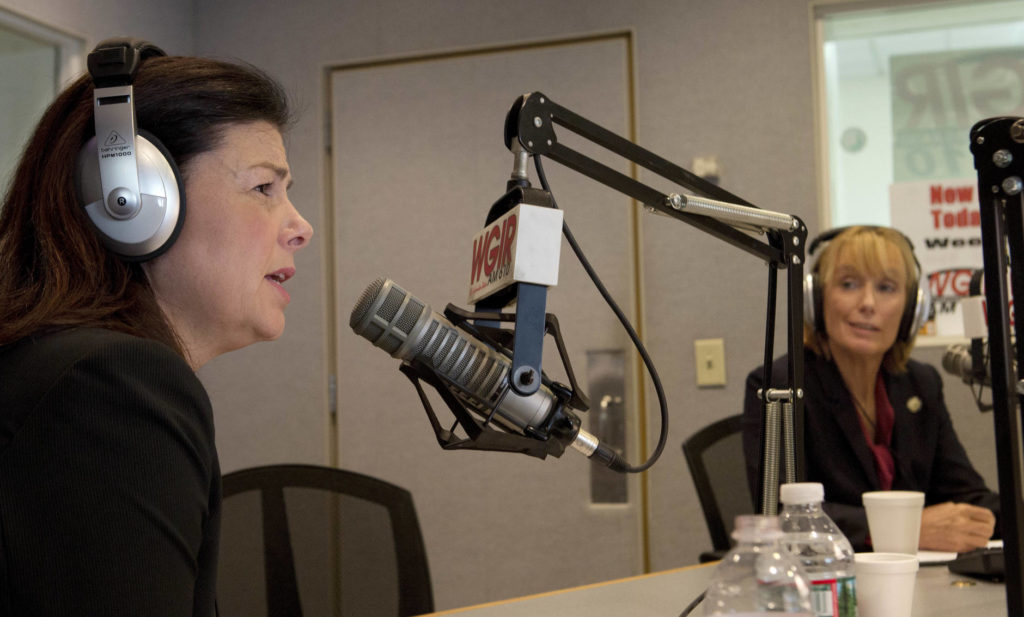
Hillary Clinton is not the only one playing defense after the FBI‘s disclosure last week of additional emails relevant to its probe of her use of a private email server. Other Democrats are under the gun, too, in dozens of down-ballot races that will determine whether they control the House and Senate next year. Clinton herself still is favored and a tracking poll conducted by ABC News and the Washington Post suggested little immediate change following the email story breaking on Friday. Still, it’s unflattering attention for Clinton in a race in which the candidate in the spotlight has typically slumped in the polls. And to the extent the fortunes of down-ballot Democrats rise and fall with Clinton, it’s a worrisome development for the party. At the very least, the flare-up gives Republicans, many of whom have been repeatedly on the defensive over a slew of controversies involving GOP presidential nominee Donald Trump, a welcome opportunity to go on offense. “This is the first time in months that down-ballot Democrats have been forced to play defense on their nominee,” said GOP consultant John Ashbrook. Still, Ashbrook says, “some of these states are almost baked” after months of campaign attacks and counter-attacks. In New Hampshire, the campaign of embattled GOP incumbent Sen. Kelly Ayotte was quick to put out a digital advertisement entitled “Dodges” that spliced television news clips on the renewed email controversy with older snippets of her opponent, Democratic Gov. Maggie Hassan, hemming and hawing when asked if Clinton is honest and trustworthy. Democrats say they haven’t seen slippage yet and they hope that the email story won’t move the needle in a half-dozen or so Senate races that are either tied or within the polling margin of error. “Headed into the final days of the election, Republicans will try whatever they can to distract from their failed records and indefensible support of Donald Trump,” said Lauren Passalacqua, national press secretary for the Democratic Senate Campaign Committee. FBI Director James Comey told Congress Friday that the bureau had discovered additional emails that might be relevant to the Clinton email case. In July, Comey announced that the FBI had completed its probe into the Clinton email server and said that Clinton would not be charged – though he reproached her for being careless with classified information. “Any slight breeze in any direction going into this final week has the potential to swing these races,” said Ian Prior, a spokesman for the Senate Leadership Fund “super PAC” that is spending heavily on behalf of GOP Senate candidates. Republicans are stoking the controversy in news releases, web ads, and in the media, but it’s not likely to become a major issue in a late burst of campaign ads. Instead, candidates are already making their “closing arguments.” “Look, it’s not a good development for Hillary Clinton,” said Democratic strategist Steve Elmendorf. “But I think we’ve seen in the polls so far that it hasn’t had much of an impact.” In the House, the GOP’s campaign committee sent out press releases trying to make the email inquiry resonate. “This is just another reminder to voters of why they haven’t trusted Hillary Clinton from the get-go,” said Katie Martin, a spokeswoman for the National Republican Congressional Committee. Still, Republicans were not airing TV ads targeting the email issue. None of the three TV ads the NRCC began airing Monday mentioned Clinton’s emails. Democrats were unified in fighting back against the GOP attacks – led by Clinton herself, who said Monday “there is no case here” by the FBI. “Democrats are not wavering in their support for Secretary Clinton. This includes voters and candidates sharing the ballot with her,” said Meredith Kelly, a spokeswoman for the Democratic Congressional Campaign Committee, which supports Democratic House candidates. Republished with permission of the Associated Press.
Democrats, GOP think Donald Trump could cost GOP House seats
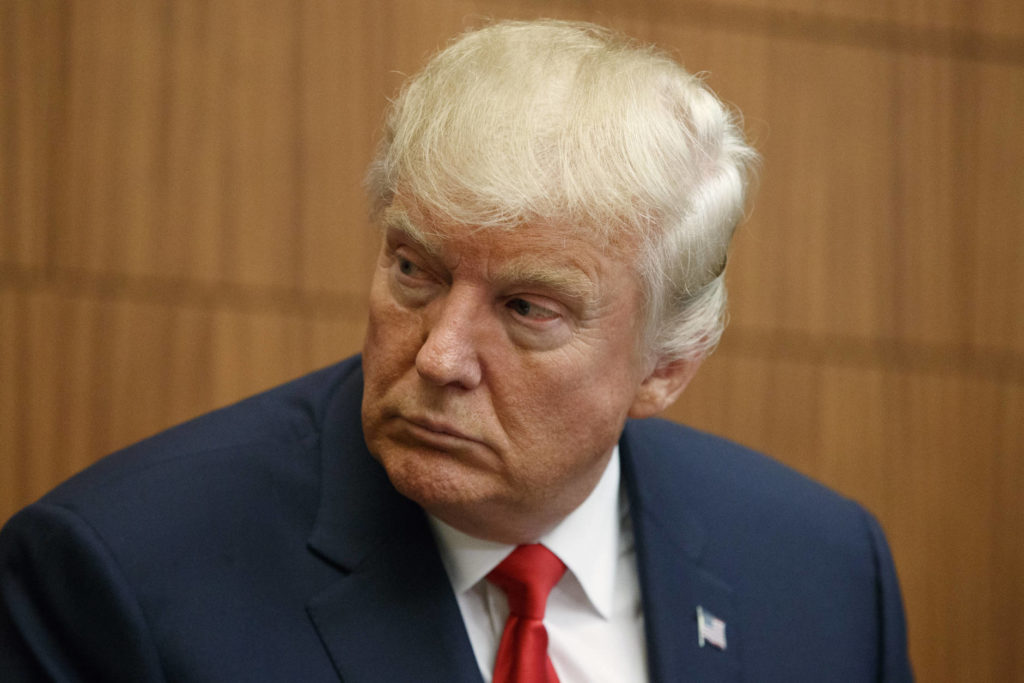
Clasping the $4,000 check that Orlando area real estate agents handed him, Rep. John Mica stood in the F&D Cantina restaurant and described his pathway to a 13th term in Congress. “We’ve got to get everybody out to vote,” the Florida Republican told supporters last week. “Don’t let it get caught up in any of the other races or issues.” That seemed code for Donald Trump, whose flagging, insult-hurling GOP presidential run carries mixed blessings for Mica in his closely divided, freshly redrawn district. Mica, 73, says Trump’s recorded comments about groping women were “vulgar and unacceptable” but still supports him. Yet in central Florida, a pivotal state in presidential and congressional elections, it’s not just the polarizing Trump who’s threatening Mica’s political career, after few serious challenges before. In a classic battle of old school vs. new, Mica – known for bringing federal transportation dollars back home – faces Democrat Stephanie Murphy, a political newcomer at 38. Her backstory includes her family’s harrowing seaborne escape from Vietnam as an infant, degrees from William & Mary and Georgetown University, positions in the Pentagon and the worlds of finance and academia. She even holds a patent for women’s softball pants made by a company her husband runs. Mica and Murphy live blocks apart in Winter Park but say they’d never met until this campaign. Now, they’re vying for one of many suburban districts that Democrats must win to achieve what seemed unthinkable until recently – House control. With only several dozen of the House’s 435 seats competitive, Democrats need a daunting 30-seat gain to take over. But with Trump sputtering in the polls and Election Day barely two weeks off, Democrats say and Republicans fear he’ll take some congressional Republicans down with him. “I think we’ll be within single digits either way,” House Minority Leader Nancy Pelosi, D-Calif., said last week. President Barack Obama endorsed 30 House Democratic candidates Monday, mostly challengers and including Murphy, as his party sought to use his popularity to gain and hold competitive seats. Republicans expect to lose seats, and some say privately it’s possible but unlikely that Trump will cost them their House majority. Some fault GOP incumbents like Mica for failing to react to the hostile political environment by raising more money and defining their opponents early. While Republicans are pursuing Democratic seats in California, Florida, Minnesota, Nebraska and New York, most GOP money is focused on protecting vulnerable incumbents. The Congressional Leadership Fund and American Action Network recently announced plans to defend 15 Republican districts from coast to coast, and there are new ads in 11 Republican districts by the National Republican Congressional Committee, the House GOP’s political organization. Democrats buoyed by Hillary Clinton‘s rising prospects are pouring money into Republican-held districts, including some around New York City, Philadelphia, Las Vegas, Los Angeles and even in some GOP-leaning states. The House Majority PAC, which helps Democrats, is spending in a vacant Republican-held district in southern Indiana and reserved $451,000 in TV advertising time against Montana’s at-large freshman GOP Rep. Ryan Zinke. The Democratic Congressional Campaign Committee, House Democrats’ campaign arm, plans to spend $1 million to try ousting a Republican in Kansas City’s Kansas suburbs. In Orlando, Mica has raised nearly double Murphy’s take. But Democratic groups have spent $1.6 million to help her and plan an additional $2.5 million – compared with virtually nothing yet backing Mica from the GOP side. One Republican said the NRCC plans to start spending for Mica soon. Still, the discrepancy in outside spending has been striking. Mica said he’d told the committee to stay out unless he needs it. “Right now, my ship is still afloat,” he said. Mica has huge name recognition advantage over the little-known Murphy. As former House transportation committee chairman, he’s credited for guiding money home to improve Interstate 4 and the region’s airport and commuter rail system. Making her first run for public office, Murphy seemed slightly uneasy addressing the elderly and veterans at a senior center in Altamonte Springs. She attacked Mica for not fully disavowing Trump, cautiously answered a question about the federal gasoline tax and got her biggest applause for embracing a bill blocking lawmakers’ salaries if no budget is passed. Her TV ad this month links Mica to a yelling, gesticulating Trump and says they “share the same harmful policies” on women’s health and guns. Murphy considers firearms a major concern. Just outside the district is Orlando’s Pulse nightclub, where a gunman killed 49 people in June, and it now includes Sanford, where unarmed black teenager Trayvon Martin was fatally shot in 2012. Asked if gun control is an issue, Mica gestured at the crowd attending a barbecue benefit for student scholarships at a vast Harley-Davidson dealership in Sanford and said: “Talk to these people. I don’t think so.” Court-ordered redistricting has left roughly 4 in 10 voters in the district new to Mica, including slightly more Democrats, younger voters from downtown Orlando and Hispanics and blacks. It’s now around 30 percent minority. “He’s productive,” said Tim Whitefield, 55, a Lake Mary banker. “But if this election is about ‘throw the bums out,’ he could be gone.” Republished with permission of the Associated Press.

